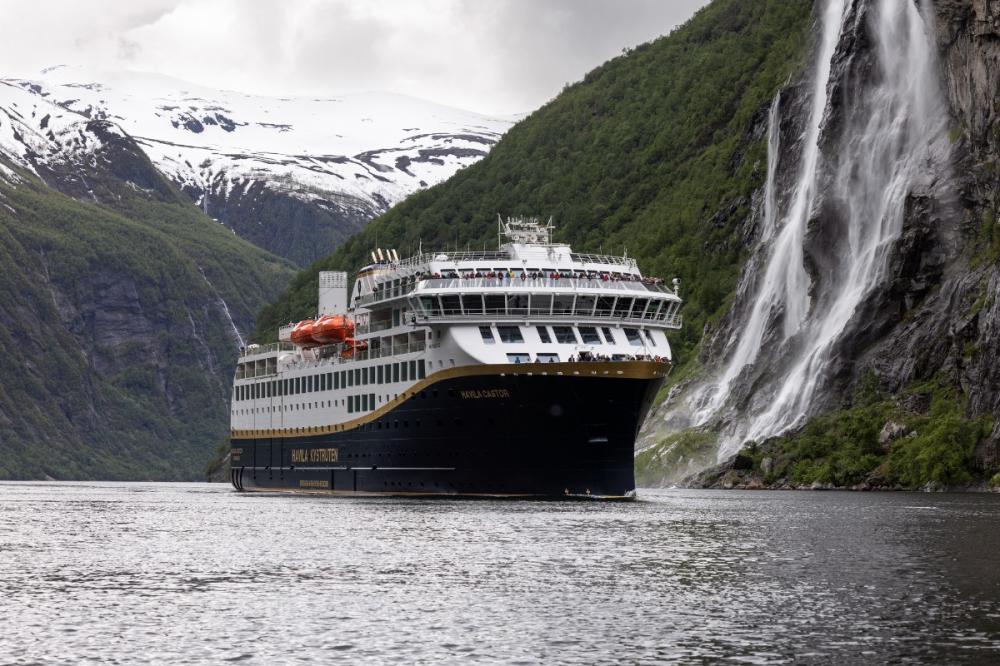search
date/time
 | Lancashire Times Weekend Edition |

Phil Hopkins
Group Travel Editor & Theatre Correspondent
@philhopkinsuk
1:00 AM 3rd June 2023
travel
Cruise Line’s Sustainability Ambitions

Havila Castor in the Geirangerfjord
All ambitions, it says, can be achieved with its current fleet.
"Last year, we made history as the world's first cruise company to sail into Norway’s Geirangerfjord UNESCO World Heritage Site emission-free and silently, four years before the government's requirement for emission-free ferries and ships in World Heritage areas comes into effect," said CEO Bent Martini.
"This is clear proof of our ambitions. We look forward to continuing our journey and doing our part to make tourism and shipping more sustainable”.
Martini points out that Havila Voyages intends to become both carbon-neutral whilst achieving zero emissions over the coming months and years.
"It starts with gradually replacing natural gas with biogas and, thereafter, the goal is to be carbon-neutral by 2028. After that, we will switch to emission-free fuel alternatives such as hydrogen, and the goal is zero emissions by 2030 - with the ships we have today," he said.
Another goal set by Havila Voyages is to reduce onboard food waste and produce only 75 grammes of food waste per person per day.
The company's food concept includes serving all meals à la carte and using locally sourced and short-travelled ingredients.
Havila Voyages’ ships, which include battery packs that enable emission-free and silent operation for four hours at a time, are the most environmentally friendly vessels to have ever sailed the historic coastal route Bergen - Kirkenes - Bergen.
With current operations, CO2 emissions are reduced by 35-40%, and local emissions such as NOx and SOx are reduced by over 90%, compared to equivalent ships using traditional fossil fuels.
"We believe that our sustainable approach to coastal tourism and our focus on climate and the environment are a positive contribution to the transition to a zero-emission society. We look forward to continuing our journey and doing our part to make tourism and shipping more sustainable socially and environmentally," added Martini.